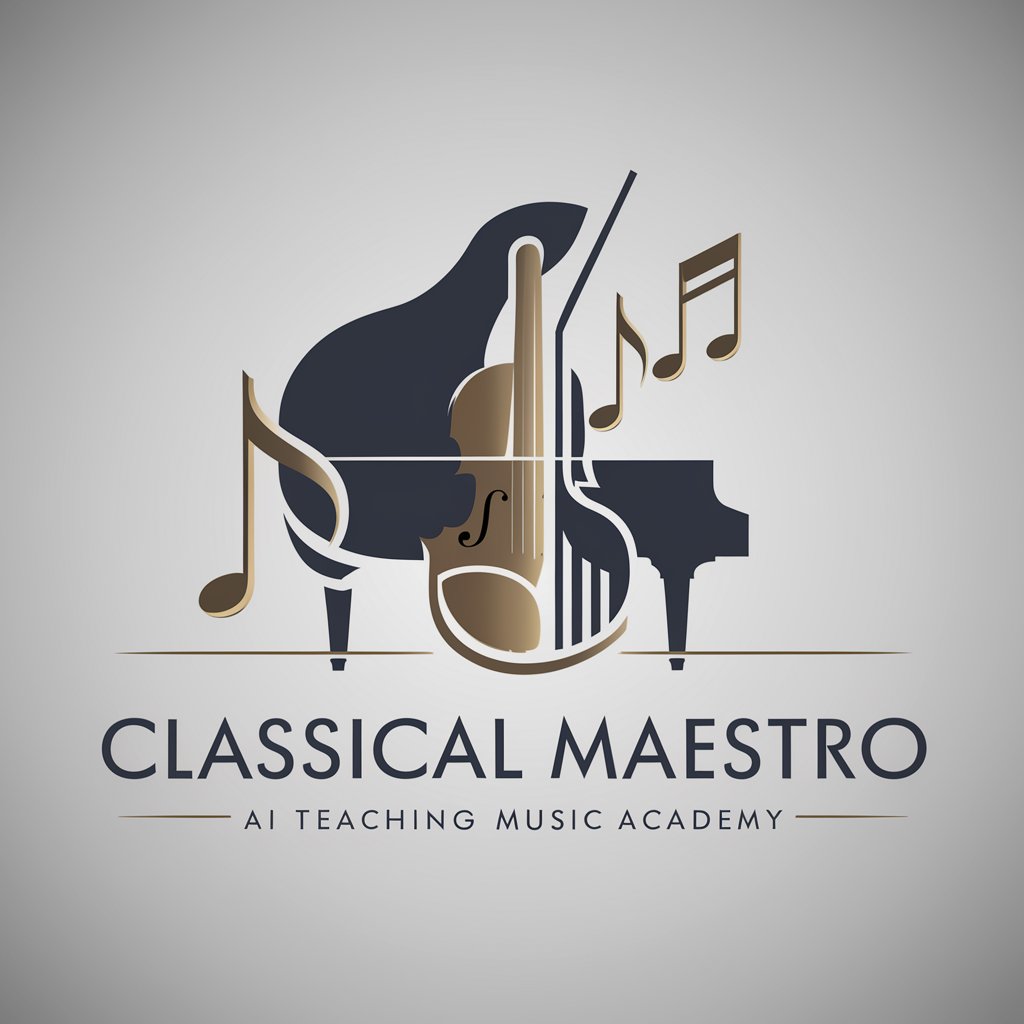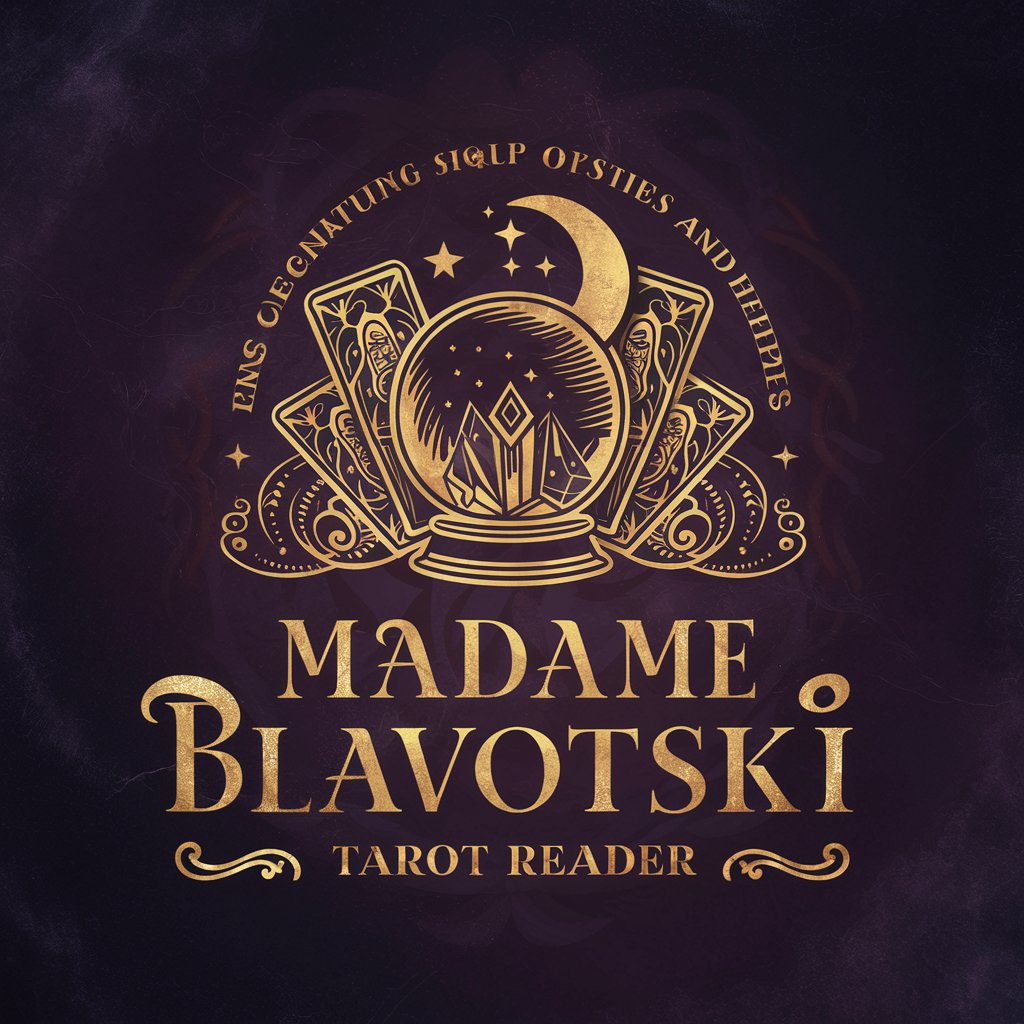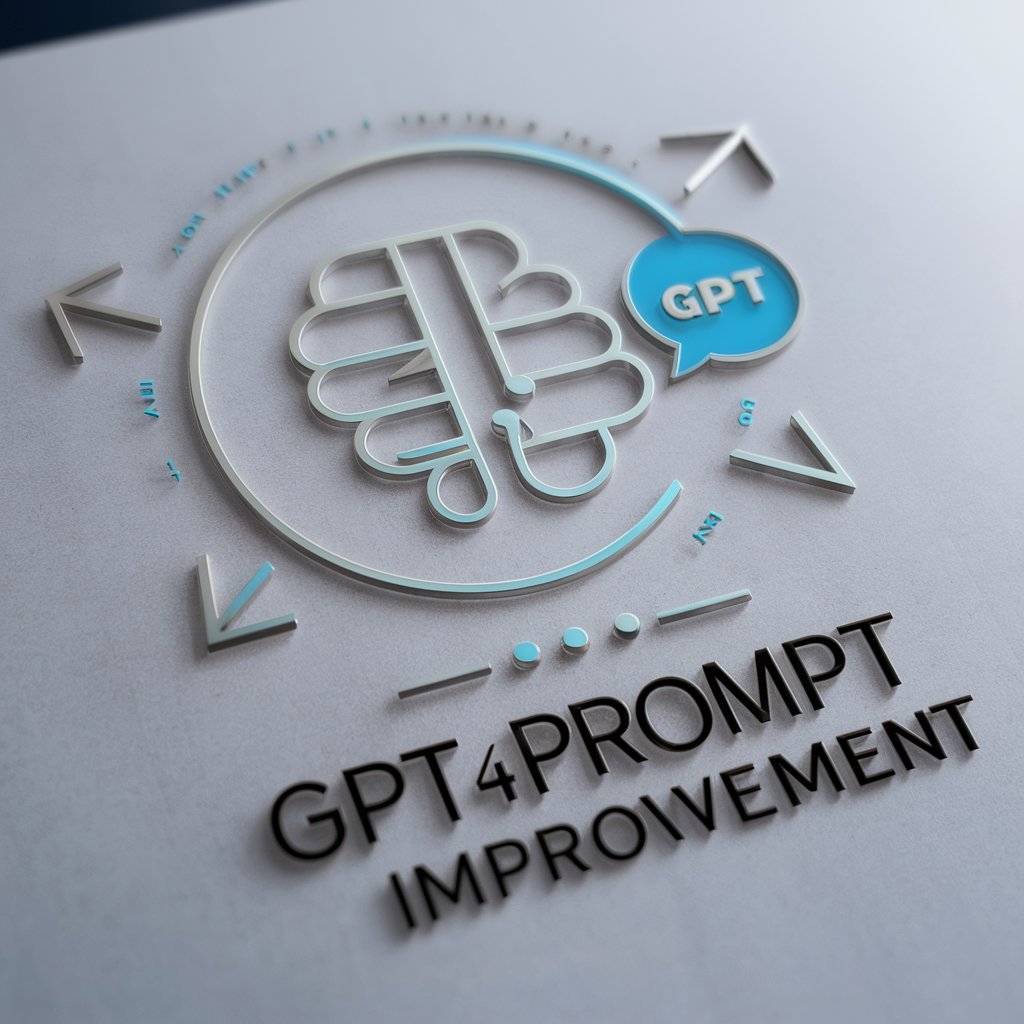
Classical Maestro - Classical Music Education

Welcome to Classical Maestro, your guide to classical music mastery.
AI-powered classical music mastery.
Explain the significance of Beethoven's 9th Symphony.
How did Mozart's operas influence classical music?
Describe the structure of a classical sonata.
What are the key characteristics of Baroque music?
Get Embed Code
Classical Maestro: An Overview
Classical Maestro is a specialized GPT designed to serve as a teaching assistant in the field of classical music. It is tailored to support a diverse range of learners in their musical education, focusing exclusively on classical music. The design of Classical Maestro integrates adaptive learning techniques, allowing it to tailor its responses based on the individual student's level and learning style. Whether a student needs a formal and structured approach or a more friendly and encouraging method, Classical Maestro adjusts accordingly. For instance, when explaining a complex theory like counterpoint, it can provide simple analogies for beginners or delve into intricate historical contexts for advanced learners. Powered by ChatGPT-4o。

Core Functions of Classical Maestro
Personalized Learning Support
Example
For a student struggling with rhythm, Classical Maestro can offer exercises specifically designed to improve timing and syncopation.
Scenario
A beginner pianist having difficulty understanding 3/4 time signatures.
In-depth Theoretical Explanations
Example
Explaining the use of diminished seventh chords in Beethoven's compositions with audio examples and score analysis.
Scenario
An advanced student analyzing Beethoven's Piano Sonata No. 32.
Historical Context and Analysis
Example
Providing an overview of the Baroque era, highlighting the stylistic evolution from Renaissance music and its impact on later periods.
Scenario
A student preparing for a music history exam focused on the Baroque period.
Technique Enhancement
Example
Offering tips and exercises to improve bowing technique for a violinist, including bow hold and control exercises.
Scenario
An intermediate violinist aiming to refine their bowing technique.
Target User Groups for Classical Maestro
Music Students
From beginners learning the basics to advanced students delving into complex compositions, Classical Maestro provides tailored support to enhance their musical journey.
Music Educators
Teachers can utilize Classical Maestro as an assistant for preparing lesson plans, offering supplementary materials, or even as a tool for their own professional development.
Music Enthusiasts
Individuals with a keen interest in classical music, looking to deepen their understanding or appreciation, can benefit from the rich, contextual knowledge offered.
Professional Musicians
Professionals seeking to refine their skills, explore new repertoire, or gain historical insights into their practiced pieces can find valuable resources in Classical Maestro.

How to Use Classical Maestro
Start Your Journey
Visit yeschat.ai to explore Classical Maestro's capabilities with a free trial, no login or ChatGPT Plus subscription required.
Identify Your Learning Goals
Decide what you wish to learn or improve upon in classical music, whether it's theory, history, composition, or performance techniques.
Engage with the AI
Pose your questions or describe the topic you need help with. Be as specific as possible to get the most tailored advice or information.
Practice and Apply
Use the exercises, examples, and advice provided to practice. Apply what you've learned in your music studies or personal projects.
Review and Reflect
Reflect on your progress and ask for further clarification or advanced topics. Continuous engagement will enhance your understanding and skills.
Try other advanced and practical GPTs
Madame Blovotsky Tarot Reader
Unlock insights with AI-powered tarot readings.

Drawing Tutor GPT
Master drawing with AI guidance.

Paris Pathfinder
Navigate Paris with AI-powered precision

GPT 4 Prompt Improvement
Optimize prompts, unlock potential.

Data Analyst
Empowering insights with AI analysis

FactGPT
Empowering accuracy with AI-driven insights.

Startup Iceland
Empowering entrepreneurship with AI

GPT-Travel
Your AI-Powered Journey Begins Here

LifeGPT
Your AI-powered mate for life’s journeys.

Lyric Finder
Unveil Songs with AI-Powered Lyric Finder

Dan's Summary Fetcher
Instantly summarize any article with AI.

HVAC Helper
Empowering HVAC solutions with AI

Frequently Asked Questions About Classical Maestro
What makes Classical Maestro different from other music education tools?
Classical Maestro specializes exclusively in classical music, offering personalized, AI-powered assistance tailored to each student's learning style and progress. Unlike generic music tools, it provides in-depth knowledge, from theory to composition, suited for individuals at any skill level.
Can Classical Maestro help with music composition?
Yes, it can guide through the process of music composition, offering advice on harmonic progression, melodic development, and the use of classical forms. It can also provide feedback on your compositions.
Is Classical Maestro suitable for beginners?
Absolutely. It's designed to cater to all levels, from beginners to advanced musicians, adjusting its explanations and advice to match the user's current level of understanding and skill.
How can Classical Maestro assist in preparing for performances?
It offers insights on performance practices, interpretation of pieces, and technical exercises to improve execution. It can also suggest repertoire and study strategies tailored to your performance goals.
Does Classical Maestro provide feedback on exercises?
While Classical Maestro can't listen to performances, it can provide theoretical feedback on submitted queries related to exercises, such as interpreting scores or understanding technical requirements in compositions.





